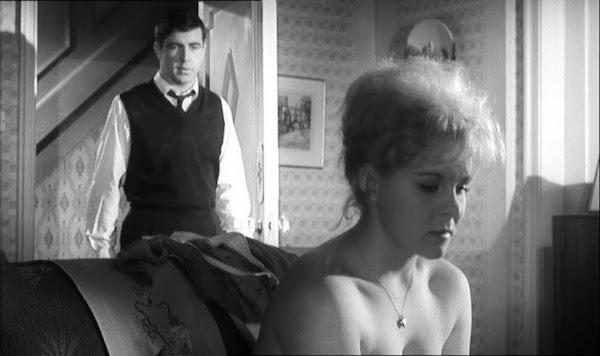In John Schlesinger’s A Kind of Loving (1962), draughtsman Vic (Alan Bates), still reeling from a drunken binge and a fight with his typist wife Ingrid (June Ritchie) and her mother (Thora Hird), staggers into the railway station of their grim Northern English town. To leave or not to leave? That is the question that also tests the mettle of another young Northerner (Tom Courtenay) in another Schlesinger film written by Keith Waterhouse and Willis Hall.
Whereas getting on a train with sometime girlfriend Liz (Julie Christie) would prove the manhood of the hero of Billy Liar (1963), for Vic it would prove a disgrace. It would abnegate his responsibility to Ingrid, whom he married, despite not returning her love, after making her pregnant. The bitter irony for him is that she lost the baby.
This is the most lyrical of the classic kitchen-sink dramas
In each film, the reward for doing the right thing is a luminously beautiful woman. Ingrid is neither as worldly nor as wise as the free spirit Liz, and she comes packaged with Hird’s harpy, but were Vic to help her through her post-natal depression he’d find her a well of passion. A Kind of Loving was Ritchie’s first and best film – and her sensitive performance, like that of Rita Tushingham in A Taste of Honey (1961), is central to the story of female entrapment in British New Wave cinema.
Shot in a permanently misty Lancashire – with a brief seaside idyll in St Anne’s, Ingrid and Vic’s honeymoon destination – this is the most lyrical of the classic kitchen-sink dramas. Brilliant with camera placement, especially in his use of close-ups and angled shots, Schlesinger stakes out the characters' emotional positions non-judgementally: Vic’s lust for Ingrid fools him into believing he is in love with her; her love for him turns into resignation and need. The moment when Vic pukes on his materialistic mother-in-law’s carpet in the prison of her showpiece semi- is a gesture of working-class defiance that would’ve made Saturday Night and Sunday Morning’s Arthur Seaton buy him a few more pints.
The disc extras include two video pieces: an insightful rave about the film by Stuart Maconie (author of Pies and Prejudice: In Search of the North), who notes its likely influence on The Smiths (Morrissey, anyway), and a thoughtful contextualising commentary by academics Melanie Williams and John Hill. There's also Schlesinger’ s Oscar-winning short Terminus (1962) and a National Film Theatre interview with him. The digital restoration makes pristine the Northern drabness.













Add comment